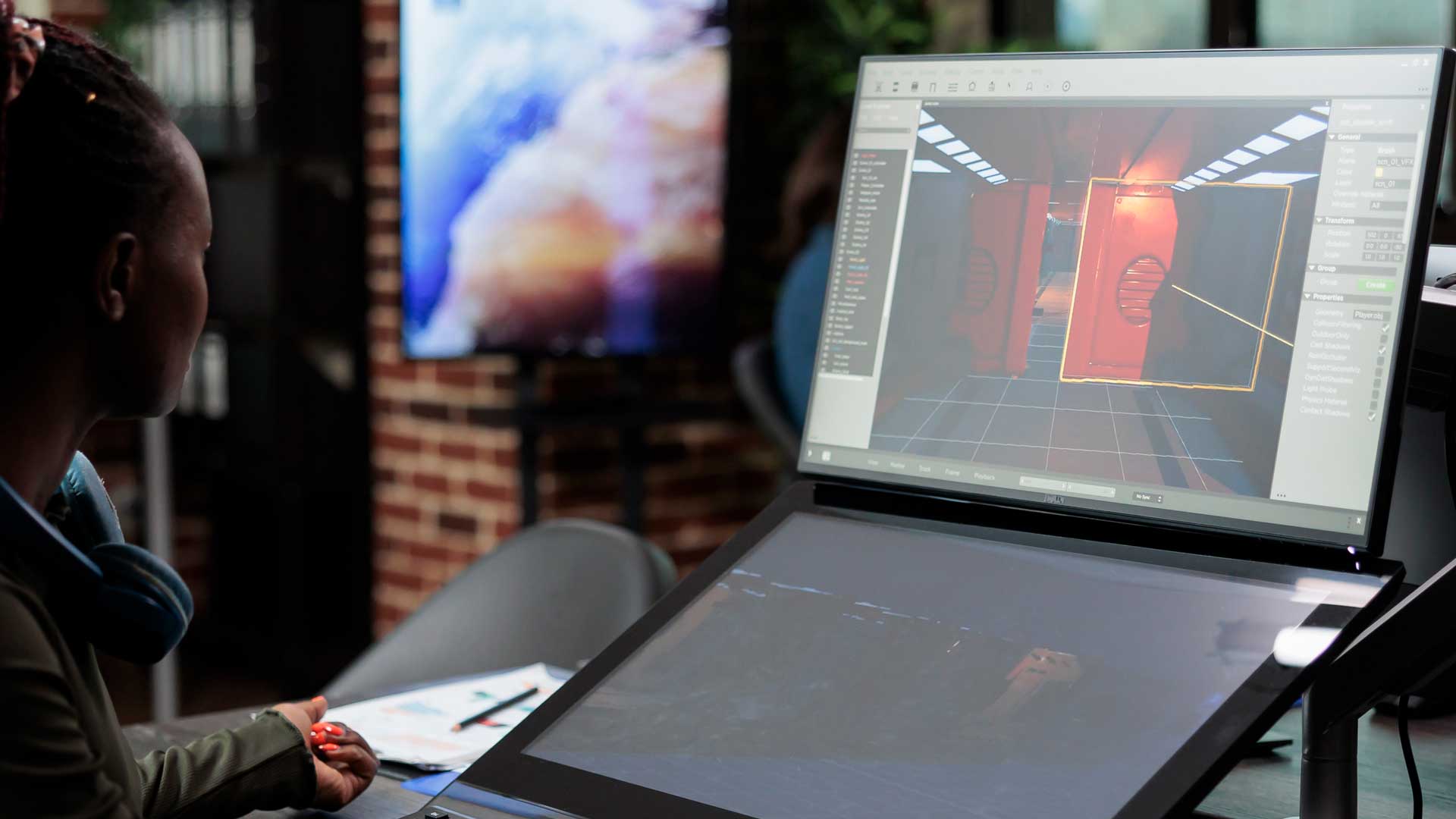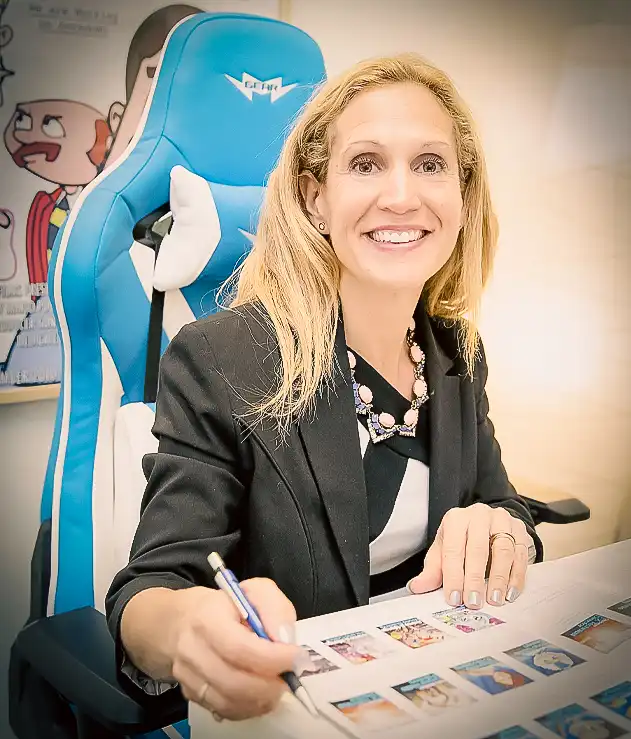 Image: DC Studio (Motion Array)
Image: DC Studio (Motion Array)
Starting Your Studio in Movies or Video Games
Whether you envision creating client projects or building your own intellectual property (IP) in animation, visual effects, and video games, these steps will guide you through launching your studio.
Step 1: Define Your Studio's Focus
Before opening your production studio, it's crucial to define your focus. Will you primarily offer services to clients, such as animation and visual effects for other studios' projects? Or are you more interested in developing your own intellectual property, like original films or video games? Understanding your studio's primary focus will shape your business strategy and guide your decisions moving forward.
Your studio's focus is like the lens through which you view the landscape of entertainment. Whether you're crafting dreams for others or weaving your own tales, clarity of what you want is key.
Step 2: Secure Funding
Regardless of your studio's focus, funding is essential for turning your vision into reality. Service studios require initial capital for equipment, software licenses, and talent recruitment, while studios developing original intellectual property may need additional resources for production budgets and marketing efforts. Explore funding options such as investors, grants, loans, or crowdfunding to kickstart your studio's journey.
Step 3: Building a Service Studio
If your studio aims to provide services to clients, such as animation or visual effects work, focus on building a strong team of artists and technical artists with diverse skills and expertise. Invest in industry-standard equipment and software to ensure high-quality output that meets clients' expectations. Make strong relationships with production companies, advertising agencies, and game developers to secure projects and build a reputation for reliability and excellence.
Key Takeaways:
- Define your studio's focus: service studio or developing original intellectual property.
- Secure funding through various channels such as investors, grants, or crowdfunding.
- Build a talented team and invest in top-notch equipment and software for service studios.
Step 4: Developing Original Intellectual Property
For studios focused on developing original intellectual property, the journey involves coming up with creative ideas from concept to completion. Surround yourself with storytellers, artists, and game designers who share your vision and passion. Develop compelling narratives, captivating characters, and immersive worlds that resonate with your target audience.
Remember to budget for production costs, marketing campaigns, and distribution strategies to bring your creations to the masses.
Step 5: Marketing and Distribution
Whether you're a service studio or developing original intellectual property, marketing and distribution are essential for reaching your audience and generating revenue. Establish a strong online presence through social media, a professional website, and digital marketing campaigns.
Network with industry professionals at conferences, festivals, and networking events to showcase your studio's capabilities and forge partnerships. Explore distribution channels such as film festivals, online platforms, and game marketplaces to distribute your work and maximize its reach.
FAQs
How much money do I need to start a production studio? The initial investment required to start a production studio can vary depending on factors such as equipment, talent, and studio space. It's essential to create a detailed budget as part of your business plan to estimate your startup costs accurately.
Can I start a production studio without prior experience in animation, visual effects, or video game development?
While prior experience can be beneficial, many successful studio founders have built their businesses through passion, dedication, and a willingness to learn. Consider enrolling in specialized programs or courses offered by institutions like VANAS Online Animation School to gain valuable skills and knowledge.
Do I need to create a business plan? Yes, creating a business plan is essential, especially if you're seeking funding from investors, banks, or other sources. A business plan provides a roadmap for your studio's growth and outlines your goals, strategies, target market, competition analysis, financial projections, and more. Investors and lenders want to see that you have a well-thought-out plan for success before they commit any funding.
What about other funding sources? In addition to traditional sources like investors and banks, government funding is available for the creative industries in many countries. These government initiatives aim to support and stimulate the growth of the creative sector by providing grants, loans, tax credits, and other financial incentives. For example, in Canada, there is the Creative Media Fund, which offers funding for various projects in film, television, digital media, and interactive content. Research the specific programs and eligibility criteria in your country to see if you qualify for government funding.
Are there tax incentives? Yes, many countries offer tax incentives specifically targeted at the creative industries to encourage production and investment in film, television, animation, visual effects, and video games. These tax incentives may include tax credits, rebates, or deductions for qualifying production expenses incurred within the country. To take advantage of these tax incentives, studios need to meet certain criteria and apply through the relevant government agencies or creative industries commissions. Reach out to these organizations in your country to learn more about the available tax incentives and how to apply for them.
Can I start solo? Yes, you can start a production studio solo, but be prepared for a significant workload. As a solo entrepreneur, you'll be responsible for wearing many hats, including promoting your studio, handling accounting and finances, negotiating contracts, selling your services or products, managing production workflows, and more. While starting solo can be a viable option, consider whether you have the time, skills, and resources to handle all aspects of running a studio on your own. Eventually, as your studio grows, you may want to consider hiring additional staff or partnering with other professionals to share the workload and expand your capabilities.
Step 6: Key Takeaways
- Define your studio's focus: service studio or developing original intellectual property.
- Secure funding through various channels such as investors, grants, or crowdfunding.
- Build a talented team and invest in top-notch equipment and software for service studios.
- Develop compelling narratives and captivating content for studios focused on original intellectual property.
- Prioritize marketing and distribution strategies to reach your audience and generate revenue.
Starting a production studio for movies and video games is an exciting and rewarding journey filled with creativity, challenges, and opportunities for growth. Whether you're providing services to clients or developing your own intellectual property, remember to stay true to your vision, embrace collaboration, and never stop pursuing your passion.
VANAS Online Animation School offers programs designed to train aspiring artists and creators with the skills and knowledge they need to succeed. Visit VANAS Online Animation School







